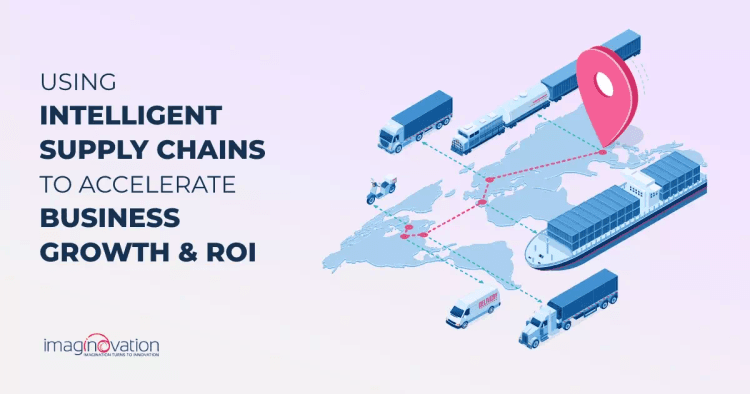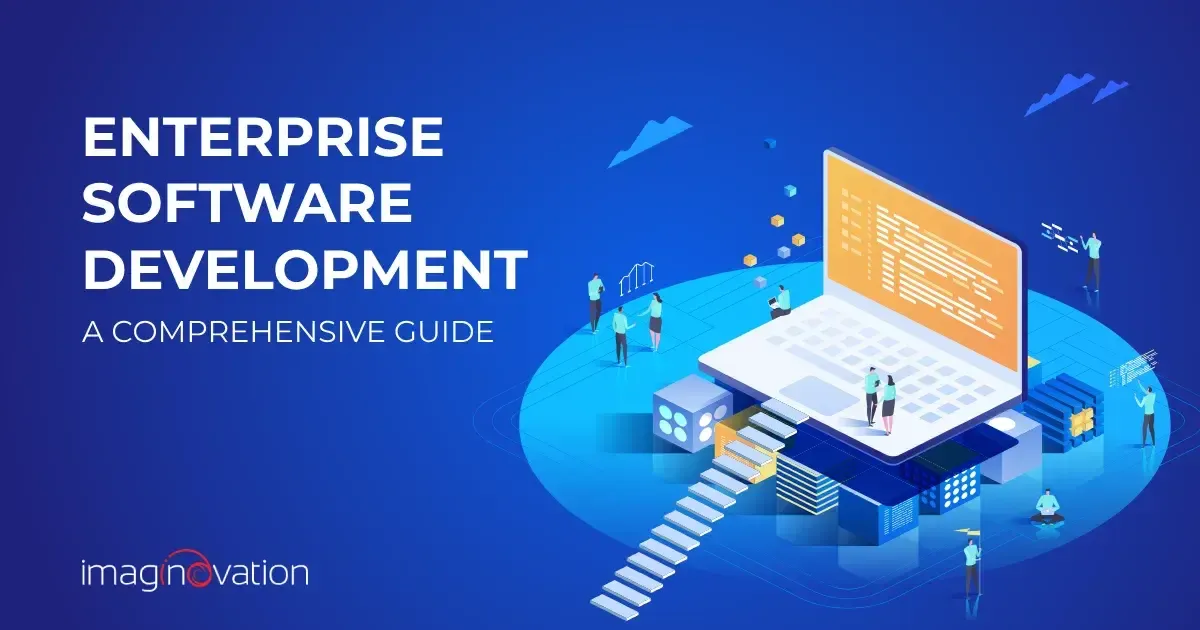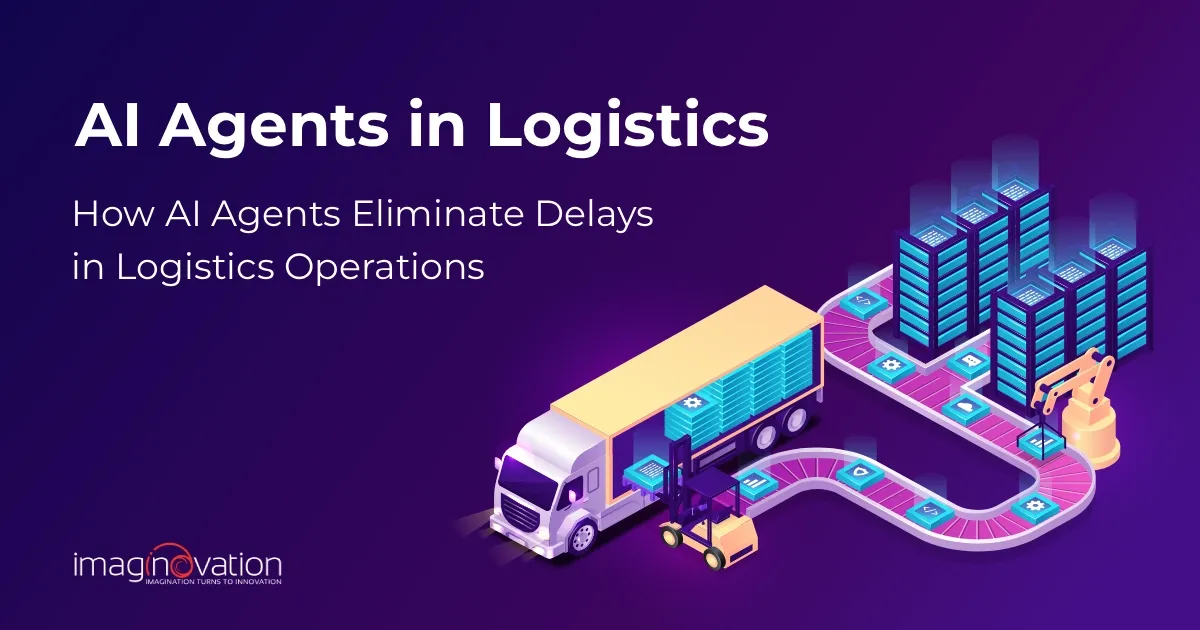To estimate the cost of building a website or an app, use our app cost calculator tool.
Discover the game-changing potential of Intelligent Supply Chains in accelerating business growth and maximizing ROI. In this article, we unravel the power of leveraging intelligent technologies to revolutionize your supply chain operations.
Gone are the days of traditional supply chains. With the rise of AI, IoT, and data analytics, businesses can now unlock unprecedented efficiency, agility, and profitability. Join us as we delve into the world of intelligent supply chains, exploring how they optimize processes, enhance visibility, and enable data-driven decision-making.
Prepare to embark on a transformative journey that will empower your organization to stay ahead of the competition. Learn how intelligent supply chains can propel your business growth, boost customer satisfaction, and drive impressive ROI. It's time to embrace the future of supply chain management and unlock untapped opportunities for success.
What is Intelligent Supply Chain Management?
Most aspects of the traditional supply chains are manual and therefore imperfect.
So, intelligent supply chain management is all about integrating advanced technologies, such as AI, ML, Blockchain, IoT, etc., into supply chain management.

If you ask what these technologies bring to a traditional supply chain, I would say several things.
- They capture real-time data from multiple sources and offer actionable insights.
- They provide access to data from anywhere at any time.
- They build cloud-based, agile, and resilient supply chain management solutions that are often scalable.
- They ensure your supply network adapts to the changing customer priorities.
- They offer accurate anticipation of disruptions.
- And, they bring cost control and forecasting of critical business points.
In short, by adding the element of intelligence, you can manage your inventory product info, track shipments, identify potential problems before they occur, and respond to them quickly.
How Can Supply Chain Leaders Adopt Intelligent Practices?
Innovation is upending all aspects of the modern supply chain. You can choose from a bouquet of technologies to modernize your supply chain.
Here's a list of all the intelligent practices you can undertake to transform your supply chain.
1. Adopt The Use of IoT-linked Systems
The IoT (Internet of Things) is a brilliant technology concept that helps you solve your business problems with your data support.
IoT creates a world where everyday devices and objects are connected to the Internet. But what makes it an intelligent choice for supply chain management is not just the interconnected devices – it is the data these devices gather and the actionable insights you garner from it.
IoT resolves several problems associated with using outdated practices and technologies in the supply chain. IoT-linked systems help you manage complex and omnichannel supply chains.
With IoT, you can have your goods equipped with monitoring devices. You can then track your products throughout the supply chain journey – right from storage, transportation, and delivery.
Real-time location tracking with IoT can alert you if your product is not shipped in the correct direction. Moreover, you can easily and quickly locate goods in the warehouse. Thanks to the environmental sensors, you can also track storage and shipment conditions like temperature, humidity, pressure, etc., and proactively respond if needed.
![]()
2. Record Transaction Data On Blockchain
Blockchain is primarily associated with cryptocurrencies. However, it ranks high amongst the technologies poised to bring better visibility and transparency to the supply chain.
Blockchain lets you create an immutable record of transactions. Therefore, it is well-situated to track the origin of information about goods, verify that transaction data is authentic, and build trust in shared details (for example, that of a supplier).
As a result, it can facilitate you to track and trace the chain of custody of goods. This will help prevent any leakage, identify counterfeit items or fraud, figure out at-risk suppliers, and form transparency.
3. Trust AI, ML, and Analytics
When handling large volumes of data from supply chains, traditional techniques are often ineffective.
Machine learning (ML) techniques teach machines to automatically (with little or no human intervention) handle this massive data effectively. Further, incorporating ML algorithms combined with AI and analytics makes them more powerful. As a result, these technologies optimize every supply chain step.
Backing your business solution with these technologies also helps you predict patterns and provide accurate info. As a result, you can also experience improvements in demand forecasting, cost-cutting, revenue generation, productivity, and supplier delivery performance.
Predictive analytics, too, has become a high priority now. Deloitte's 2019 Supply Chain Digital and Analytics survey found that surveyed companies have started investing in predictive analytics mainly to drive cost reduction (by 81% of respondents) and improve customer experience (60% of respondents).
With these technologies' trio by your side, you can quickly bring visibility and strategic sourcing/optimization of the supply chain network. And you can make quick improvements and recognize inefficiencies that should be addressed. Moreover, such insights reduce downtime and optimize workflows.
4. Automate
Many years ago, robots started playing a significant role in the supply chain – moving goods/materials in warehouses or transport.
But, with sophisticated technologies like AI, machines are assigned many other manual tasks currently handled by humans. So, you can easily automate picking and packing orders and automate heavy loading.
Moreover, AI/ ML and IoT connectivity improve the precision and mobility of industrial robots. This has led us to a new generation of cobots (collaborative robots) working alongside humans.
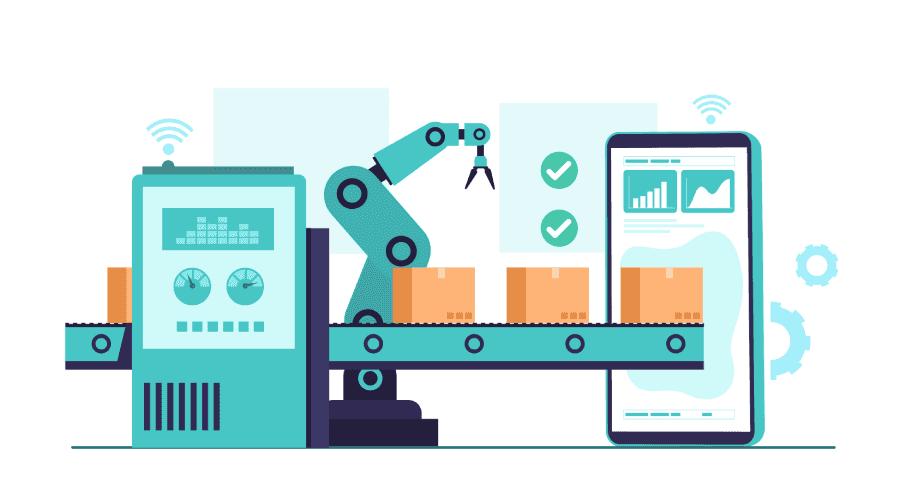
With digital technologies by your side, you can automate and streamline all supply chain processes that are menial, manual, time-consuming, and error-prone.
This will ensure the supply chain's agility to respond to the unexpected. As a result, automation will improve all parts of the supply chain, benefitting everyone - the manufacturers, suppliers, customers, and retail stores.
5. Work Smart With 3D Printing.
Instead of investing in warehouses and inventory, you can put your money into technology. This way, you can decentralize production and build product and parts in local assembly hubs. This is where 3D printing comes in.
3D printing ensures you make products closer to where their demand is. In addition, it allows companies to slash logistics and transportation costs and avoid geopolitical risks and tariffs linked with offshore outsourcing.
This means products get to the customers faster, bringing speed to your supply chain.
How to Leverage an Intelligent Supply Chain for Business Growth?
A more intelligent supply chain means interconnectedness, speed, visibility, and efficiency.
Here’s what you should do to leverage an intelligent supply chain for growth and ROI.
1. Offer 360-degree Visibility.
Executives want to be informed about their supply chains – every shipment leaving a supplier’s dock, any anticipated delay, or units sitting on the manufacturer’s assembly line.
This 360-degree visibility is a crucial feature of an intelligent supply chain. So, in an intelligent supply chain, objects – and not people – do a lot of data collection and sharing.
Therefore, intelligent supply chains must make sure data critical to your business needs reach you via all the connected devices - robots, trucks, store shelves, or parts and products moving through the supply chain.
This increased visibility helps you plan better and is vital to decision-making and real-time execution. In addition, in unforeseen situations like delayed shipments, such visibility is necessary to make contingency plans and minimize any adverse impacts on the supply chain.
An end-to-end supply chain visibility positively impacts operational efficiency and helps you manage your inventory and raw materials better, eventually leading to business growth.
2. Automate All Supply Chain Processes
Traditional supply chains have time-consuming workflows. Automating these processes cuts down the time needed to complete a cycle, making them more efficient and optimized.
Moreover, they improve the accuracy and speed of mundane tasks.
3. Develop Predictive Analytics to Stop Losses
Supply chain management cannot have complete control over all external events. However, by its side, predictive analytics can prepare you to be proactive and foresee/ tackle upcoming disruptions. It's a great help at enhancing profitability and reducing waste.
For example, an oil and gas manufacturing firm can, with the help of analytics, predict when the customer's field equipment may need replacement before it wears out and affects operations. This info can help the manufacturer get the equipment produced and replaced in advance and prevent setbacks in the future.
Similarly, the temperature data of food storage can predict how soon a food product will ripen and get spoiled. This analysis is necessary for inventory planning and promoting early-to-be-spoiled food items.
4. Disintegrate Silos
Critical information is often trapped within separate silos in a traditional supply chain.
Digital technology, however, can expand this scope and give a clear view of all the data and status of the products. When you rethink the processes of your supply chain network and employ innovative technologies to solve business problems, the silos will disintegrate.
This gives way to better collaboration between everyone involved.
5. Automate The Operations at The Warehouse and Distribution Center
Start looking into automated hardware solutions to bring efficiency. These can include AMRs – autonomous mobile robots, automated conveyors, picker robots, cobots, and other IoT systems. Be innovative – think about automated delivery drivers for effortless transport across the “last mile” of the delivery.
Instead of replacing the employees, look for solutions to support the employees, helping them become more efficient and accurate in their work to focus on other value-creating responsibilities.
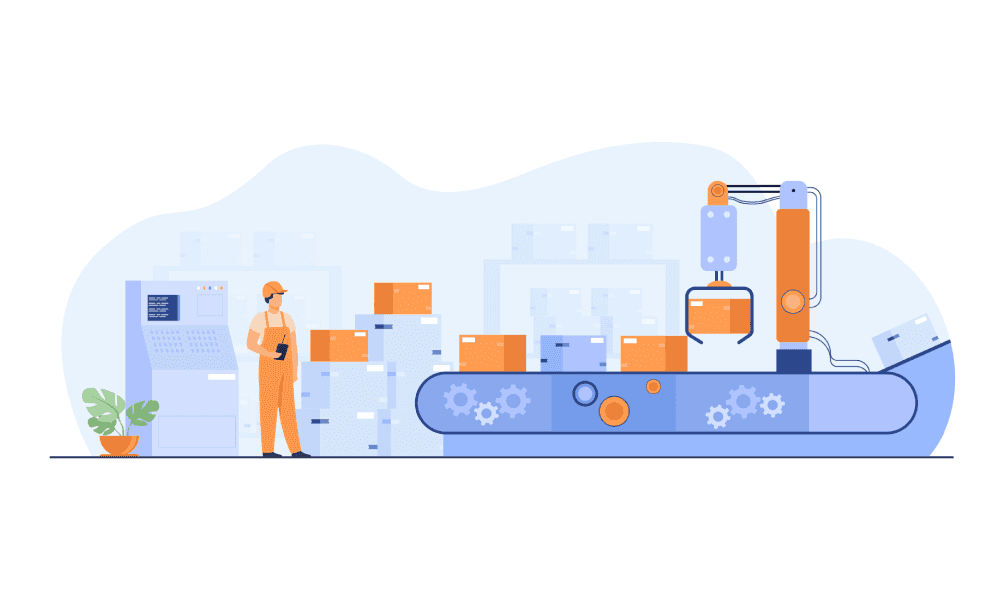
6. Collaborate in Real-time and Cut Down Costs
Thanks to technologies, real-time collaboration between supply network participants reduces cost and improves decision-making, planning, and execution.
Such solutions can easily monitor changes in demand and supply. Moreover, it’s excellent when buyers and suppliers collaborate on forecasting, inventory, purchase orders, quality, and risks.
7. Use Data to Spot Patterns
The data collected in an intelligent supply network provides an insight into the entire operations. With AI, ML you can transform the data into actionable business intelligence and identify patterns and anomalies in supply chain and distribution networks.
This leads you to build an action plan for delivering success.
Achieve High Growth and ROI Embracing Intelligent Supply Chain with Imaginovation
In this volatile business environment, it's essential to align your supply chain strategies with rapidly changing business strategies.
An intelligent supply chain is a key to better decisions and actionable insights for a company's exponential growth and ROI.
Get in touch with Imaginovation and move your company towards intelligent supply chain management.
We will help you become more flexible and responsive, bringing in interconnection and intelligence with innovation and technology.
Imaginovation is an award-winning web and mobile app development company with vast experience crafting remarkable digital success stories for diverse companies. Let's talk.





